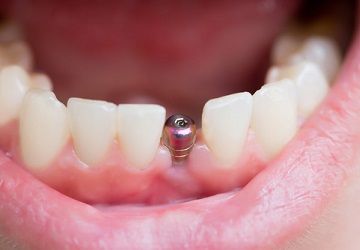Study Reveals Patient Knowledge of Dental Implants
In a recent study out of VCU, researchers targeted patient knowledge and treatment success rate in the area of implant dentistry. The vast majority of patients in both groups said that oral surgeons were the most qualified to place dental implants, and that cost is the most significant limiting factor for treatment. These insights could aid oral health care providers in providing patient education. Continue below to learn more about the study.

Researchers compared responses from general and dental implant patients to determine patient knowledge compared to the general public
Researchers from The Virginia Commonwealth University School of Dentistry (VCU) are pushing for public education on implant dentistry to improve patient knowledge and treatment success rate.
RELATED:
- 8 Ridiculous Things That Annoy All Dentists
- Dentist Builds Career Through Ownership, Doctor Development
- Everything You Need to Know about Marketing to Millennial Moms
George Deeb, D.D.S., M.D., director of the Resident and Undergraduate Dental Implant Program at VCU, and a team of researchers published results from a 126-patient survey on implant dentistry knowledge in this month’s edition of the Journal of Oral and Maxillofacial Surgery. The team compared responses from general patients and patients seeking implant dentistry treatment at the dental school’s clinic.
“The purpose of this study was to determine whether patients presenting for consultation regarding the placement of dental implants are more knowledgeable than members of the general public, whether the information they have regarding dental implants is correct, and the sources they may have used to obtain their information,” the team said.
Knowledge about dental implants
The survey included three knowledge questions, which asked patients to answer fact based questions about dental implants. Seventy percent of dental implant patients correctly answered the first knowledge question by saying implants are made from titanium. More than half of general patients, on the other hand, thought implants were made from porcelain.
General patients were also more inclined to select shorter dental implant lifespans than implant patients. Nearly half of dental implant patients said that implants would last more than 20 years as compared to fewer than one-third of general patients. Conversely, no dental implant patients thought implants would last fewer than five years, whereas 10 percent of general patients did.
Both groups emphasized hygiene as an important factor of long term implant success. Approximately 90 percent of patients in both groups agreed dental implants required the same hygiene as natural teeth.
Obtaining Information about Dental Implants
The study suggested that dental implant knowledge gaps were due to differences in how patients in each group obtained knowledge about dental implants.
“Fewer group I respondents correctly answered two of the three knowledge questions on the questionnaire, and this means that treating doctors will have to spend more time on correctly educating such persons should they become implant patients,” the team wrote.
More than half of dental implant patients obtained most of their information about implants from their dentist. General patients sought information from less reliable sources. Nearly 40 percent of general patients obtained knowledge about implant procedures from friends or relatives and less than one quarter from their dentist.
The study further identified significant differences in information sourcing behavior based on patient education level. Respondents with a college education or higher were more likely to report using dentists and the Internet and significantly less likely to report using TV as a source of information, according to the study’s authors.